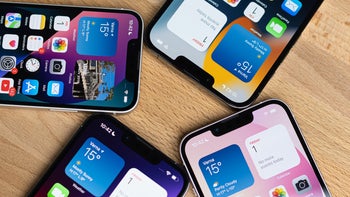Research shows how some apps are bypassing iOS App Tracking Transparency

Okay, last year Apple introduced a feature called App Tracking Transparency with iOS 14.5. This quite useful feature enables you to opt out of being tracked by apps for targeted ads, and is, as you can tell, a privacy-centered feature. However, it seems some apps have found ways to bypass it and are still managing to track you, according to a new independent research, reports 9to5Mac.
Apple's App Tracking Transparency (ATT), upon its announcement and introduction last year, gathered a lot of iPhone users opting out of third-party app tracking. A lot of iOS users basically decided not to allow apps to track their behavior in other apps and online, and choosing to have less-relevant ads, but better privacy.
However, according to new research made by the Department of Computer Science, University of Oxford (via ArsTechnica) some developers have found their way around ATT and have managed to bypass it. The thing is, Apple's ATT still works, but there are some loopholes that allow some developers to make apps silently collect some data from your device.
The research analyzed nine iOS apps that were found to use server-side code to generate a user identifier (this is used for ads, this is the identifier used to track you), even when App Tracking is disabled. The code is reportedly provided by a subsidiary of the Chinese company Alibaba called Umeng. This code allows apps to track this server-side identifier accross other apps. And yes, this leads to ad companies being able to target content to a specific user.
Ways that this could be made possible is by using IP addresses to link installation-specific IDs across apps, as well as using the sign-in functionality provided by individual apps (like Google or Facebook sign-in, or email address)...
As 9to5Mac rightfully underlines, all of this doesn't mean that ATT is useless, as it generally makes it more difficult for developers to track users, and they don't have the same amount of data even if they use some ATT bypassing techniques. On top of that, Apple could also be making ATT better every year and it might get harder to bypass in the future.
To delve more into detail, we know that some of the major companies such as Meta and Snap have felt the impact of App Tracking Transparency. Recently, we reported on the possible impact App Tracking Transparency could have on Facebook, and it is indeed not something to ignore.
A research report from Lotame showed that the second year of ATT is expected to indeed cause major disruption to advertisers. According to the research, companies that rely on advertising, including Facebook, YouTube, and others, are estimated to collectively lose around $16 billion because of the feature.
As you can see, this impact has us believe that the App Tracking Transparency feature is far from useless at the moment. If Apple works to close the loopholes that enable some apps to bypass tracking, it would be even better. Some apps were found by the researchers to violate Apple's policies (the example is the app we mentioned above, Umeng), so Cupertino should also work on better ways to enforce its policies on iOS and iPadOS as well.
Research shows some apps might still find ways to track you on iPhone, bypassing ATT
Apple's App Tracking Transparency (ATT), upon its announcement and introduction last year, gathered a lot of iPhone users opting out of third-party app tracking. A lot of iOS users basically decided not to allow apps to track their behavior in other apps and online, and choosing to have less-relevant ads, but better privacy.
The research analyzed nine iOS apps that were found to use server-side code to generate a user identifier (this is used for ads, this is the identifier used to track you), even when App Tracking is disabled. The code is reportedly provided by a subsidiary of the Chinese company Alibaba called Umeng. This code allows apps to track this server-side identifier accross other apps. And yes, this leads to ad companies being able to target content to a specific user.
But the research didn't stop there. In total, the researchers compared 1,759 apps before and after ATT. Shockingly, although a quarter of these apps claim they don't collect any user data, 80% of them were found to contain at least one tracking library.
Ways that this could be made possible is by using IP addresses to link installation-specific IDs across apps, as well as using the sign-in functionality provided by individual apps (like Google or Facebook sign-in, or email address)...
Despite all that, App Tracking Transparency is not at all useless
As 9to5Mac rightfully underlines, all of this doesn't mean that ATT is useless, as it generally makes it more difficult for developers to track users, and they don't have the same amount of data even if they use some ATT bypassing techniques. On top of that, Apple could also be making ATT better every year and it might get harder to bypass in the future.
A research report from Lotame showed that the second year of ATT is expected to indeed cause major disruption to advertisers. According to the research, companies that rely on advertising, including Facebook, YouTube, and others, are estimated to collectively lose around $16 billion because of the feature.













Things that are NOT allowed: